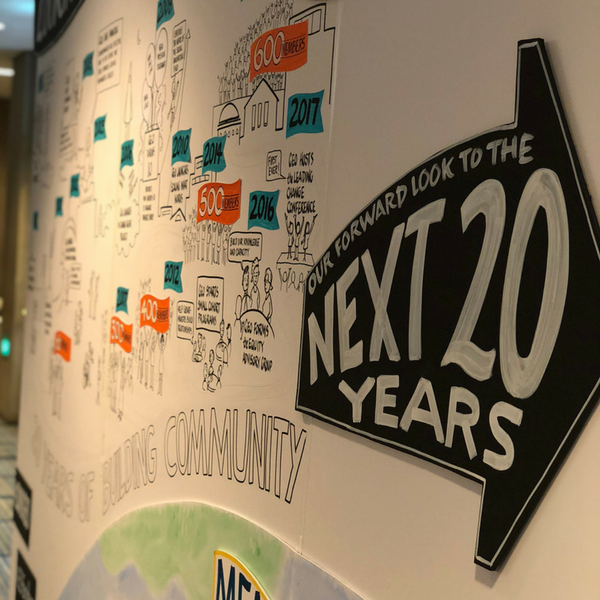This year, GEO welcomed back Nell Edgington, president of Social Velocity, to blog about the 2018 GEO National Conference. We cross-posted Nell’s daily conference recap blogs, so if you weren’t able to join us in person at the conference, you can still read about the highlights from Day 1, Day 2 and Day 3. In this final post, Nell reflects on what she observed at the conference.
The Grantmakers for Effective Organizations’ (GEO) conference wrapped up last week leaving participants with much to ponder. (If you missed the three guest posts in the GEO conference blog series, you can still read Kathy Reich’s post, Sean Thomas-Breitfeld’s post, and Pia Infante’s post.)
Over the course of the three days of the conference, I often wondered whether this might be the moment at which our generation of philanthropy recognizes and begins to address the fact that it is born from — and thus must consciously address — inequity. Philanthropy, by definition, is the result of wealth inequality: those who have achieved enormous wealth decide to give some of that wealth away. While wealth inequality is on the rise, so is racial inequality, according to an update to the landmark 1968 Kerner report, which was released this past February.
This situation is quite similar to that at the end of the 19th century. The Gilded Age brought enormous wealth to “robber barons” like Andrew Carnegie who then gave to philanthropic endeavors, like the Carnegie libraries that cropped up across the country and can still be seen in many cities today. But Carnegie’s philanthropy was sometimes seen as perpetuating a system of wealth inequality, as The Los Angeles Herald warned at the time: “[Andrew Carnegie and other philanthropists] have aimed to betray, and succeeded in betraying, the American laborer. It has been the old and only too true story of the rich becoming richer and the poor poorer, year by year.”
The parallels to today are fascinating. The technology boom brought untold wealth to some (like Bill Gates and Mark Zuckerberg) who have then made large philanthropic investments. But several speakers at the GEO conference asked philanthropists to take a hard look at how much their philanthropy has truly sought to disrupt the system of inequality from which it was born. As Kathleen Enright, President of GEO, said in her opening keynote remarks: “If you aren’t recognizing the racial disparities in the solution you are attempting to solve, then you aren’t solving it.”
And many other speakers seemed to agree. Nikole Hannah-Jones argued that many philanthropy-backed education reforms of recent years (like charter schools) have focused on fixing surface problems instead of the root cause: “What would our public schools look like if we stopped spending money on trying to make separate equal, and instead integrated our schools?” And Brian Barnes of TandemEd similarly argued that “Philanthropy’s blindspot is that it will only push for change so far as change doesn’t challenge its own interests, positions and reputations.”
In fact many of the speakers and panelists at the GEO conference were asking philanthropists to take a hard look at whether their philanthropy was disrupting or perpetuating the system of inequality from which it was born. Which begs the question: could this be the moment in which philanthropy moves from a band-aid for society’s growing wealth inequality, to a beacon leading society toward a more equitable path?
Certainly GEO is not representative of philanthropy as a whole. By definition GEO members are philanthropists who are seeking to do more with their philanthropy — they are striving to become more “effective” philanthropists. But perhaps this group of philanthropic leaders can start to move philanthropy to become more — to truly remedy the disparities that caused its birth in the first place. That would be transformative.

